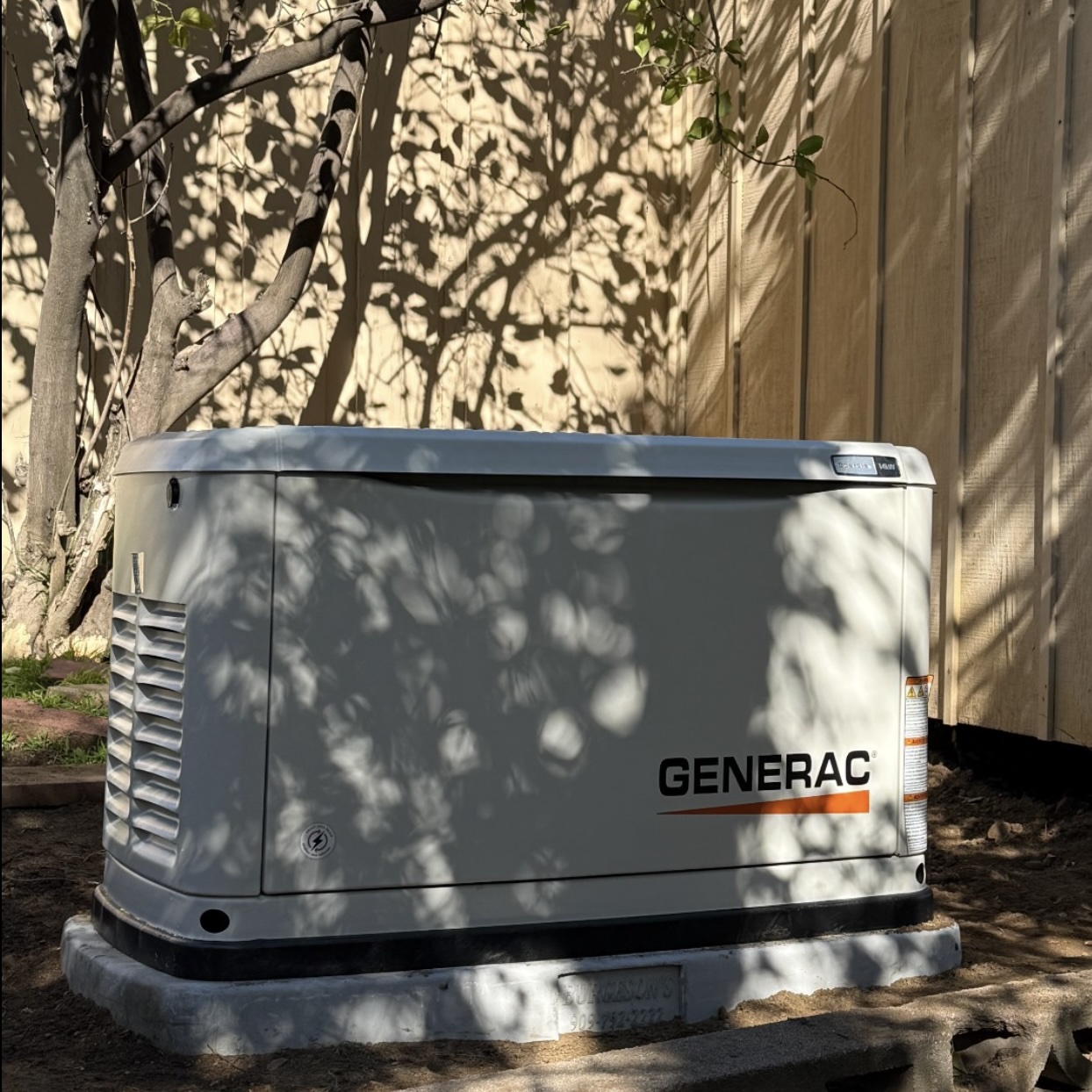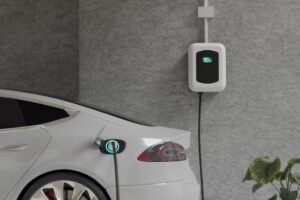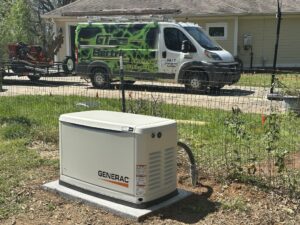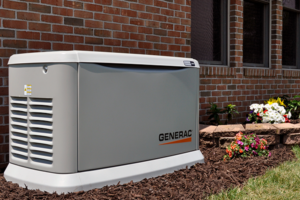At GT Electric, we know how essential a reliable generator is to your home, especially in Tallahassee and across Florida, where storms and hurricanes frequently cause unexpected power outages. But why do generators fail during a power outage, right when you need them most? A generator that hasn’t been properly maintained or inspected can leave you in the dark—literally.
Let’s take a closer look at the five most common reasons why generators underperform or fail during an outage—and how you can prevent these costly problems.
Why Generators Fail During a Power Outage
1. Fuel Issues: Stale Fuel, Contamination, and Clogs
One of the most frequent reasons why generators fail during a power outage is fuel-related problems. Whether your generator runs on natural gas, propane, or diesel, fuel degradation and delivery issues can prevent proper operation.
🔧 Common fuel-related failures include:
- Stale fuel: If your generator runs on gasoline or diesel and sits unused for months, the fuel can degrade, leading to engine clogging or combustion issues.
- Clogged fuel filters: Dirt, debris, or algae buildup in diesel generators can prevent fuel from flowing properly.
- Air in the fuel lines: This can stop fuel delivery, especially in propane or natural gas generators.
- Leaking fuel lines: Small leaks reduce efficiency and can cause complete failure.
✅ Prevention Tip: Schedule a fuel system inspection annually. If you have a gasoline or diesel generator, use fuel stabilizers or cycle fresh fuel regularly to prevent contamination.
2. Battery Failure and Electrical Issues
Much like a car, a generator relies on a battery to start. If the battery is dead, corroded, or weak, your generator won’t even turn on when you need it most.
🔧 Common battery-related failures include:
- Aging batteries: Most generator batteries last 2-5 years. If yours is older, it may struggle to provide enough charge to start.
- Corrosion on battery terminals: Poor electrical connections reduce power efficiency.
- Loose or damaged cables: Worn-out cables can disrupt power flow and prevent proper starting.
✅ Prevention Tip: Have a professional inspect your battery and connections at least once a year. If your generator is more than two years old, test or replace the battery proactively to avoid failure.
3. Lack of Routine Maintenance
A generator isn’t a “set it and forget it” piece of equipment. Just like your car needs oil changes and tune-ups, your generator requires regular servicing to perform when needed.
🔧 Maintenance mistakes that lead to failure include:
- Skipping oil and filter changes: Dirty oil reduces engine efficiency and can cause overheating.
- Neglecting air filter replacements: A clogged air filter restricts airflow, making the engine work harder or preventing it from running at all.
- Ignoring coolant levels: Low or contaminated coolant can lead to overheating and shutdown.
- Failing to run periodic load tests: If a generator sits unused for months, small issues can go unnoticed until a major outage occurs.
✅ Prevention Tip: Schedule a professional generator maintenance service at least once a year—or twice a year if you rely on it heavily. GT Electric offers routine maintenance plans to keep your generator in peak condition.
4. Overloading the Generator
Many homeowners underestimate how much power their appliances and systems require during an outage. If you overload your generator—meaning you try to power too many devices at once—it can shut down or run inefficiently.
🔧 Signs of overloading include:
- Flickering lights or low voltage output
- The generator is struggling to stay running
- Circuit breakers inside the generator are tripping frequently
✅ Prevention Tip: Work with a licensed electrician to size your generator properly. If you’re unsure how much power you need, GT Electric can assess your home’s energy demands and recommend the right generator capacity.
5. Automatic Transfer Switch (ATS) Malfunctions
Most whole-home standby generators use an Automatic Transfer Switch (ATS) to detect a power outage and automatically turn the generator on. If the ATS fails, your generator won’t activate, leaving you powerless.
🔧 Common ATS failures include:
- Electrical failures: Worn-out contacts or wiring issues prevent the switch from working.
- Software or programming errors: Some ATS units need updates or reprogramming to function correctly.
- Delayed activation: If your generator doesn’t start within seconds of an outage, the ATS may be malfunctioning.
✅ Prevention Tip: Have an electrician test your ATS annually to ensure proper function. GT Electric can inspect, repair, or replace your ATS if needed.
Ensure Your Generator is Ready When You Need It
A backup generator is a lifeline during storms, hurricanes, and unexpected power failures—but only if it’s properly maintained.
At GT Electric, we specialize in:
✅ Generator Inspections – We check fuel systems, batteries, wiring, and more.
✅ Preventative Maintenance – Keep your generator in top shape year-round.
✅ Repairs & Upgrades – Fix issues before they lead to total failure.
Don’t wait until the next outage to find out your generator isn’t ready. Contact GT Electric today to schedule a generator inspection and make sure your home stays powered when it matters most!








